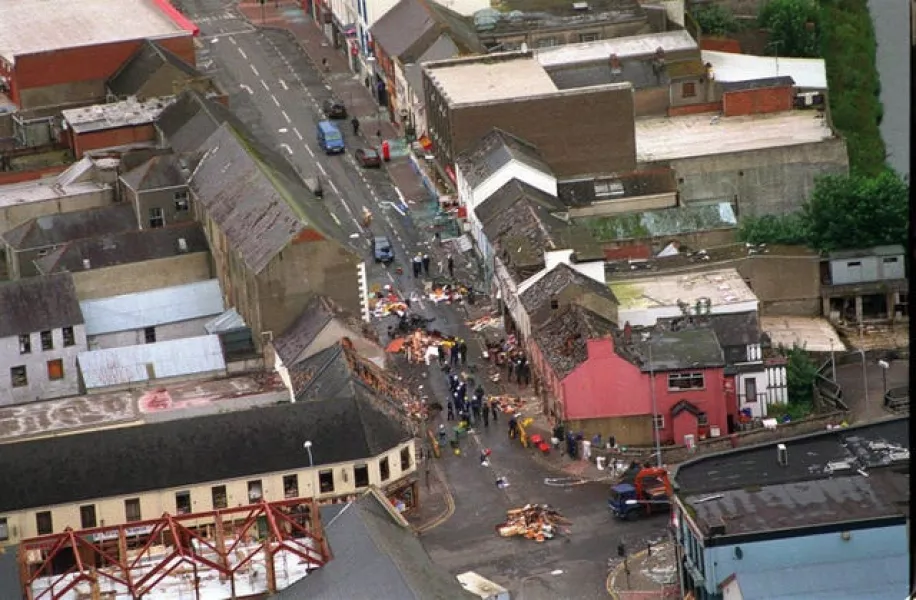A judge has recommended the British government carry out an investigation into the Omagh bombing, and urged the Irish Government to do likewise, after finding “plausible arguments” that there was a “real prospect” of preventing the atrocity.
Delivering judgment in a legal challenge against the UK government’s refusal to hold a public inquiry, Justice Horner said a human rights compliant probe was needed to examine whether a more “proactive” security approach against dissident republican terrorists in the lead-up to the Real IRA bombing may have thwarted it.
The outrage in August 1998 killed 29 people, including a woman pregnant with twins. It was the worst single atrocity of the Troubles.
Eight years ago, Michael Gallagher, whose son Aiden was killed in the blast, launched the judicial review against the UK government’s refusal to order a public inquiry into security failings prior to the bombing.
Delivering the long-awaiting judgment in Belfast High Court, Mr Justice Horner said: “I am satisfied that certain grounds when considered separately or together give rise to plausible allegations that there was a real prospect of preventing the Omagh bombing.
“These grounds involve, inter alia, the consideration of terrorist activity on both sides of the border by prominent dissident terrorist republicans leading up to the Omagh bomb.
“I am therefore satisfied that the threshold under Article 2 ECHR (European Convention on Human Rights) to require the investigation of those allegations has been reached.”
Judge Horner said he was not going to order that the probe take the form of a public inquiry, explaining that he did not want to be “prescriptive”.

He also said he did not have the powers to order the authorities in the Irish Republic to act, but he expressed hope the Irish Government would take a decision to order one.
“I am not going to order a public inquiry to look at the arguable grounds of preventability,” he said.
“I do not intend to be prescriptive. However, it is for the government or governments to hold an investigation that is Article 2 compliant and which can receive both open and closed materials on the designated grounds.”
The judge added: “It is not within my power to order any type of investigation to take place in the Republic of Ireland but there is a real advantage in an Article 2 compliant investigation proceeding in the Republic of Ireland simultaneously with one in Northern Ireland.

“Any investigation will have to look specifically at the issue of whether a more proactive campaign of disruption, especially if co-ordinated north and south of the border, had a real prospect of preventing the Omagh bombing, and whether, without the benefit of hindsight, the potential advantages of taking a much more aggressive approach towards the suspected terrorists outweighed the potential disadvantages inherent in such an approach.”
In a brief hearing, Mr Justice Horner only read the conclusion of his judgment to Belfast High Court on Friday.
He explained he was unable to read the full open judgment setting out his reasoning because the person whose job it was to check the document to ensure it did not contain sensitive material was self-isolating with Covid-19.







